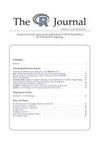diproperm:用于 DiProPerm 测试的 R 软件包。
IF 1.1
4区 计算机科学
Q3 COMPUTER SCIENCE, INTERDISCIPLINARY APPLICATIONS
引用次数: 0
摘要
高维低样本量(HDLSS)数据集经常出现在许多生物医学应用中。方向-投影-畸变(DiProPerm)检验是一种双样本假设检验,用于比较两个高维分布。DiProPerm 检验是精确的,即在任何样本量下都能保证 I 型误差控制在标称水平,因此适用于 HDLSS 设置。本文讨论了 DiProPerm 检验的关键组成部分,介绍了 diproperm R 软件包,并在实际数据集上演示了该软件包。本文章由计算机程序翻译,如有差异,请以英文原文为准。
diproperm: An R Package for the DiProPerm Test.
High-dimensional low sample size (HDLSS) data sets frequently emerge in many biomedical applications. The direction-projection-permutation (DiProPerm) test is a two-sample hypothesis test for comparing two high-dimensional distributions. The DiProPerm test is exact, i.e., the type I error is guaranteed to be controlled at the nominal level for any sample size, and thus is applicable in the HDLSS setting. This paper discusses the key components of the DiProPerm test, introduces the diproperm R package, and demonstrates the package on a real-world data set.
求助全文
通过发布文献求助,成功后即可免费获取论文全文。
去求助
来源期刊

R Journal
COMPUTER SCIENCE, INTERDISCIPLINARY APPLICATIONS-STATISTICS & PROBABILITY
CiteScore
2.70
自引率
0.00%
发文量
40
审稿时长
>12 weeks
期刊介绍:
The R Journal is the open access, refereed journal of the R project for statistical computing. It features short to medium length articles covering topics that should be of interest to users or developers of R.
The R Journal intends to reach a wide audience and have a thorough review process. Papers are expected to be reasonably short, clearly written, not too technical, and of course focused on R. Authors of refereed articles should take care to:
- put their contribution in context, in particular discuss related R functions or packages;
- explain the motivation for their contribution;
- provide code examples that are reproducible.
 求助内容:
求助内容: 应助结果提醒方式:
应助结果提醒方式:


